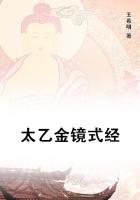(October 1844)
1. Correspondence of William Pitt, Earl of Chatham. 4 vols. 8vo.
London: 1840.
2. Letters of Horace Walpole, Earl of Orford, to Horace Mann. 4 vols. 8vo. London: 1843-4.
More than ten years ago we commenced a sketch of the political life of the great Lord Chatham. We then stopped at the death of George the Second, with the intention of speedily resuming our task. Circumstances, which it would be tedious to explain, long prevented us from carrying this intention into effect. Nor can we regret the delay. For the materials which were within our reach in 1834 were scanty and unsatisfactory when compared with those which we at present possess. Even now, though we have had access to some valuable sources of information which have not yet been opened to the public, we cannot but feel that the history of the first ten years of the reign of George the Third is but imperfectly known to us. Nevertheless, we are inclined to think that we are in a condition to lay before our readers a narrative neither uninstructive nor uninteresting. We therefore return with pleasure to our long interrupted labour.
We left Pitt in the zenith of prosperity and glory, the idol of England, the terror of France, the admiration of the whole civilised world. The wind, from whatever quarter it blew, carried to England tidings of battles won, fortresses taken, provinces added to the empire. At home, factions had sunk into a lethargy, such as had never been known since the great religious schism of the sixteenth century had roused the public mind from repose.
In order that the events which we have to relate may be clearly understood, it may be desirable that we should advert to the causes which had for a time suspended the animation of both the great English parties.
If, rejecting all that is merely accidental, we look at the essential characteristics of the Whig and the Tory, we may consider each of them as the representative of a great principle, essential to the welfare of nations. One is, in an especial manner, the guardian of liberty, and the other of order. One is the moving power, and the other the steadying power of the State.
One is the sail, without which society would make no progress; the other the ballast, without which there would be small safety in a tempest. But, during the forty-six years which followed the accession of the House of Hanover, these distinctive peculiarities seemed to be effaced. The Whig conceived that he could not better serve the cause of civil and religious freedom than by strenuously supporting the Protestant dynasty. The Tory conceived that he could not better prove his hatred of revolutions than by attacking a government to which a revolution had given birth. Both came by degrees to attach more importance to the means than to the end. Both were thrown into unnatural situations; and both, like animals transported to an uncongenial climate, languished and degenerated. The Tory, removed from the sunshine of the Court, was as a camel in the snows of Lapland.
The Whig, basking in the rays of royal favour, was as a reindeer in the sands of Arabia.
Dante tells us that he saw, in Malebolge, a strange encounter between a human form and a serpent. The enemies, after cruel wounds inflicted, stood for a time glaring on each other. A great cloud surrounded them, and then a wonderful metamorphosis began.
Each creature was transfigured into the likeness of its antagonist. The serpent's tail divided itself into two legs; the man's legs intertwined themselves into a tail. The body of the serpent put forth arms; the arms of the man shrank into his body.
At length the serpent stood up a man, and spake; the man sank down a serpent, and glided hissing away. Something like this was the transformation which, during the reign of George the First, befell the two English parties. Each gradually took the shape and colour of its foe, till at length the Tory rose up erect the zealot of freedom, and the Whig crawled and licked the dust at the feet of power.
It is true that, when these degenerate politicians discussed questions merely speculative, and, above all, when they discussed questions relating to the conduct of their own grandfathers, they still seemed to differ as their grandfathers had differed. The Whig, who, during three Parliaments, had never given one vote against the Court, and who was ready to sell his soul for the Comptroller's staff or for the Great Wardrobe, still professed to draw his political doctrines from Locke and Milton, still worshipped the memory of Pym and Hampden, and would still, on the thirtieth of January, take his glass, first to the man in the mask, and then to the man who would do it without a mask. The Tory, on the other hand, while he reviled the mild and temperate Walpole as a deadly enemy of liberty, could see nothing to reprobate in the iron tyranny of Strafford and Laud. But, whatever judgment the Whig or the Tory of that age might pronounce on transactions long past, there can be no doubt that, as respected the practical questions then pending, the Tory was a reformer, and indeed an intemperate and indiscreet reformer, while the Whig was conservative even to bigotry. We have ourselves seen similar effects produced in a neighbouring country by similar causes. Who would have believed, fifteen years ago, that M. Guizot and M. Villemain would have to defend property and social order against the attacks of such enemies as M. Genoude and M. de La Roche Jaquelin?
Thus the successors of the old Cavaliers had turned demagogues; the successors of the old Roundheads had turned courtiers. Yet was it long before their mutual animosity began to abate; for it is the nature of parties to retain their original enmities far more firmly than their original principles. During many years, a generation of Whigs, whom Sidney would have spurned as slaves, continued to wage deadly war with a generation of Tories whom Jeffreys would have hanged for republicans.

